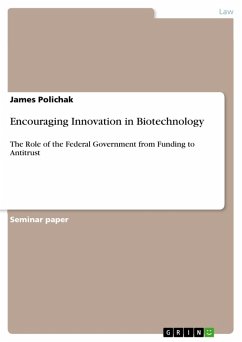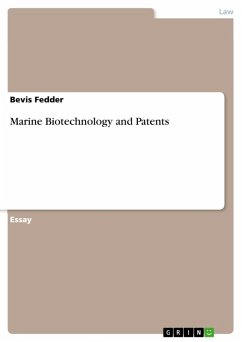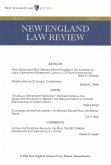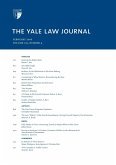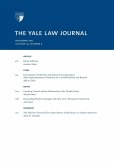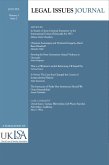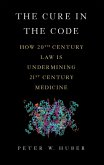Seminar paper from the year 2003 in the subject Law - European and International Law, Intellectual Properties, grade: A, University of Michigan (School of Law), course: Human Experimentation and Legal Theory, language: English, abstract: Article I of the United States Constitution delegates to Congress the power to award limited monopolies for a certain end: "to promote the progress of Science and useful Arts, by securing for limited times to Authors and Inventors the exclusive Right to their respective Writings and Discoveries." The primary way that Congress has performed this function with regard to science is through the enactment of the Patent Act and the creation of the Patent and Trademark Office (PTO) to administer application of the act. Recent decades have seen a great expansion in the amount and importance of research in the life sciences and their applied counterparts, biotechnology and pharmaceuticals. Coinciding with this expansion is an expansion of the role of the Federal Government in producing and regulating these areas of research and technology. This expansion has seen both PTO and the Federal Courts develop regulations and standards within the patent system that are focused on the particularities of biotechnology and the development of patent-like awards outside of the patent system. This expansion has also seen the Federal Government become the largest funder of research in the life sciences at the same time as it relinquishes ownership of the resulting intellectual property. More recently, antitrust authorities have begun to impose demands that intellectual property rights in biotechnology be divested in certain mergers. Through all of these policies, the Federal Government has involved regulatory agencies beyond the traditional PTO to further the traditional goal of PTO, to encourage innovation in science, and in biotechnology in particular. [...]
Dieser Download kann aus rechtlichen Gründen nur mit Rechnungsadresse in A, B, BG, CY, CZ, D, DK, EW, E, FIN, F, GR, HR, H, IRL, I, LT, L, LR, M, NL, PL, P, R, S, SLO, SK ausgeliefert werden.

